Cardiology in Germany – treatment in the Best Hospitals
Here you will find most technologically advanced cardiological hospitals in Germany
The selection of doctors and clinics is carried out on the basis of annual qualification reports. The main selection criterion is the number of operations or procedures performed. It takes into account experience, reputation in the medical society, the availability of quality certificates and high specialization in a certain field.
Focus of treatment:
- Angina pectoris (heart attack)
- Anomalous pulmonary venous connection
- Aortic coarctation
- Aortic valve insufficiency (avi)
- Aortic valve stenosis
- Atrial flutter (fibrillation)
- Atrial septal defect (ASD)
- Atrioventricular block (av-block)
- Atrioventricular nodal reentrant tachycardia
- Atrioventricular valve dysplasia (avd)
- Bradycardia
- Cardiomyopathy
- Carotid artery stenosis
- Carotid sinus syndrome
- Congenital and acquired heart defects
- Coronary insufficiency
- Endocarditis
- Heart failure
- Hypertension
- Left bundle branch block (lbbb)
- Left ventricular aneurysm
- Long QT syndrome
- Mitral valve insufficiency (prolapse)
- Mitral valve stenosis
- Myocardial infarction (heart attack)
- Myocarditis
- Patent foramen ovale (PFO)
- Pericarditis
- Pulmonary hypertension
- Pulmonary hypertension with acute heart failure
- Pulmonary valve insufficiency
- Pulmonary valve stenosis
- Sick sinus syndrome (SSS)
- Stokes-Adams Syndrome
- Syncope
- Tetralogy of fallot (ToF)
- Tricuspid valve disease
- Tricuspid valve stenosis
- Vegetative dystonia
- Ventricular flutter
- Ventricular septal defect (VSD)
- Wolff-Parkinson-White Syndrom (WPW-syndrom) Show more
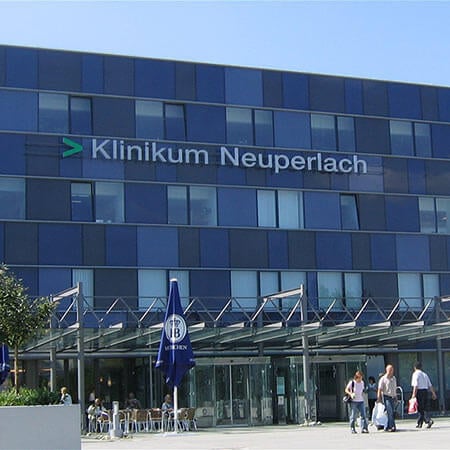
Department of Cardiology and Pulmonology
The Department of Cardiology and Pulmonology provides the full range of diagnostic and therapeutic services for patients with diseases of the cardiovascular system and lungs. In the field of cardiology, key attention is paid to the treatment of valvular heart disease, arrhythmias, heart failure, coronary artery disease, arterial

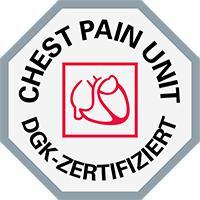
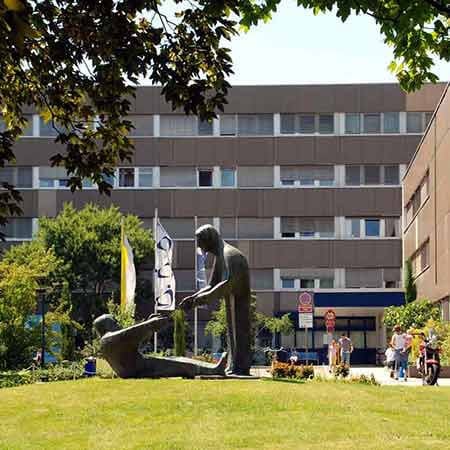
Department of Cardiology and Angiology
The Department of Cardiology and Angiology offers the full range of medical services in the fields of its competence. The department's doctors specialize in the treatment of congenital and acquired heart defects. The key focus is on catheter-based heart interventions, which are characterized by a minimal trauma rate and allo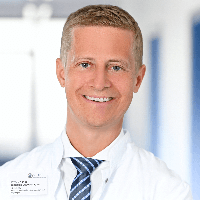

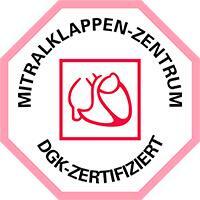
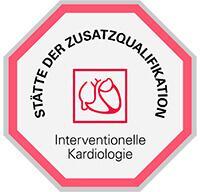


Department of Cardiology and Angiology
The Department of Cardiology and Angiology offers the full range of medical services in the areas of its specialization. The medical facility holds consultations and carries out the diagnostics and treatment of diseases of the heart and blood vessels. The department's team of cardiologists focuses on patients with valvular h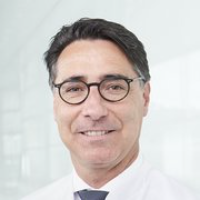





Cardiovascular diseases are the most common cause of human death. Most of them are treatable. If you are undergoing treatment in Germany, it is highly likely that this treatment will be minimally invasive. German hospitals perform endovascular procedures and sparing operations through short chest incisions. Surgical interventions are performed without a heart-lung machine to reduce the risk of complications whenever possible. Upon completing cardiology treatment in Germany, you can undergo full-fledged rehabilitation to restore the functions of the cardiovascular system and improve exercise tolerance.
Content
- Treatment of coronary heart disease
- Treatment of heart valve disease
- Treatment of heart arrhythmias
- Pediatric cardiology
- Other heart diseases
In Germany, cardiac diseases are treated with novel medications, minimally invasive interventions (balloon angioplasty and stenting, aortic valve replacement, etc.), and open-heart surgeries. Cardiologists and cardiac surgeons choose the most sparing and effective treatment regimen.
The best specialized German hospitals are Hospital Neuperlach Munich, St. Vincentius Hospital Karlsruhe – Academic Hospital of the University of Freiburg, and University Hospital Ulm.
To start your treatment in Germany, leave the request on the Booking Health website. Here you can find reliable information about hospitals and treatment options, as well as receive necessary assistance (e.g. help with choosing doctor and treatment method, making an appointment, issuing visa, booking tickets and accommodation, translating documents, etc.).
Treatment of coronary heart disease
This disease causes a narrowing of the blood vessels that carry blood to the heart. As a result, patients suffer from attacks of angina pectoris (retrosternal pain); in the future myocardial infarction or coronary death may occur. Germany offers two main treatment methods: cardiologists can dilate the coronary vessels or create new arteries (bypasses) to supply the heart with blood, bypassing the narrowed sites.
The first surgical intervention is called coronary angioplasty and stenting. It is performed through the blood vessels in the leg. Doctors insert a balloon into the arteries, inflate it and dilate the blood vessels, then implant a framework (stent) to keep the lumen wide enough for normal blood supply to the myocardium.
The second approach is more effective and is used in more severe cases. The surgical intervention is called coronary artery bypass grafting. Whenever possible, cardiac surgeons in Germany perform it on a beating heart. Sometimes endoscopic video equipment and a robot-assisted surgical system can be used to make surgery safer and less traumatic.
Treatment of heart valve disease
The most common heart valve diseases are mitral regurgitation and aortic stenosis. Cardiologists in Germany can correct both types of heart valve defects using minimally invasive techniques.
The standard treatment for aortic stenosis is prosthetic repair. This surgical intervention is performed through a large chest incision in most countries. Nonetheless, such surgical interventions carry high health risks and require a long recovery. In Germany, most artificial aortic valves are delivered to the heart through the femoral artery, without chest incisions.
Mitral regurgitation is usually treated with open-heart surgery. But with a high surgical risk, minimally invasive operations can also be performed. Through the femoral artery, doctors deliver a "clip" that connects the heart valve leaflets and reduces its area. This manipulation is followed by suturing plastic surgery of the annulus fibrosus. Mitral valve prolapse often requires the implantation of artificial chords: they can be inserted into the heart through a short chest incision.
Treatment of heart arrhythmias
Patients with life-threatening tachycardias or bradycardias often travel to the departments of cardiology in Germany. They deal with the treatment of heart blocks, sick sinus syndrome, atrial fibrillation, Wolff-Parkinson-White syndrome and any other pathologies. There are three main treatment methods:
- ablation of pathological impulse pathways, usually with the use of a radiofrequency technique;
- implantation of a pacemaker;
- implantation of a cardioverter-defibrillator.
Some or even all of these methods may be used in the same patient. A pacemaker and a cardioverter-defibrillator are often combined in the same device. All surgical interventions are minimally invasive, so they do not require opening the chest.
Pediatric cardiology
Approximately 1% of all children are born with heart defects. Cardiologists in Germany successfully eliminate 98% of them. Many of them are treated with the use of minimally invasive techniques. For example, doctors may perform balloon angioplasty in coarctation of the aorta or pulmonary artery stenosis (dilate the narrow area with an inflated balloon). If necessary, the procedure can be supplemented with stenting. In the case of an atrial or ventricular septal defect, it is closed with an occluder – a device delivered to the heart through the blood vessels on the leg, then straightened and fixed to the rest of the septum.
Surgeons often have to resort to open-heart surgery. Therefore, such interventions are traumatic and complex and must be performed in the best hospitals. The healthcare professionals in Germany achieve excellent results with a low risk of complications. For example, in such a severe defect as the tetralogy of Fallot, patients' lethality does not exceed 1%, while on average, it is three times higher in the world. Doctors successfully deal with the treatment of transposition of the great vessels, anomalous pulmonary venous drainage, and others, including rare heart defects.
Other heart diseases
Many patients come to German hospitals for diagnostics and treatment of inflammatory heart diseases:
- pericarditis;
- myocarditis;
- endocarditis.
Whenever possible, the treatment involves the use of conservative methods. Sometimes there is a need for invasive procedures and surgical interventions. Surgeons in Germany successfully perform interventions even in the most complex situations, such as severe endocarditis caused by active inflammation.
Patients with cardiomyopathies seek medical attention from the German heart centers. The most common of these conditions are dilated and hypertrophic cardiomyopathies. Doctors perform minimally invasive procedures in the obstructive form of hypertrophic cardiomyopathy instead of open-heart surgery: percutaneous alcohol or radiofrequency septal ablation. It provides comparable results. In severe forms of cardiomyopathy (dilated, restrictive) with irreversible damage to the heart, it is possible to implant an artificial ventricle or an artificial heart and perform a heart transplant.
You can undergo diagnostics and treatment of heart diseases in Germany. You are welcome to use the Booking Health service to compare the prices for procedures and operations in different cardiology clinics in Germany and book your treatment program at the best price.
Authors:
The article was edited by medical experts, board-certified doctors Dr. Vadim Zhiliuk and Dr. Sergey Pashchenko. For the treatment of the conditions referred to in the article, you must consult a doctor; the information in the article is not intended for self-medication!
Sources:

